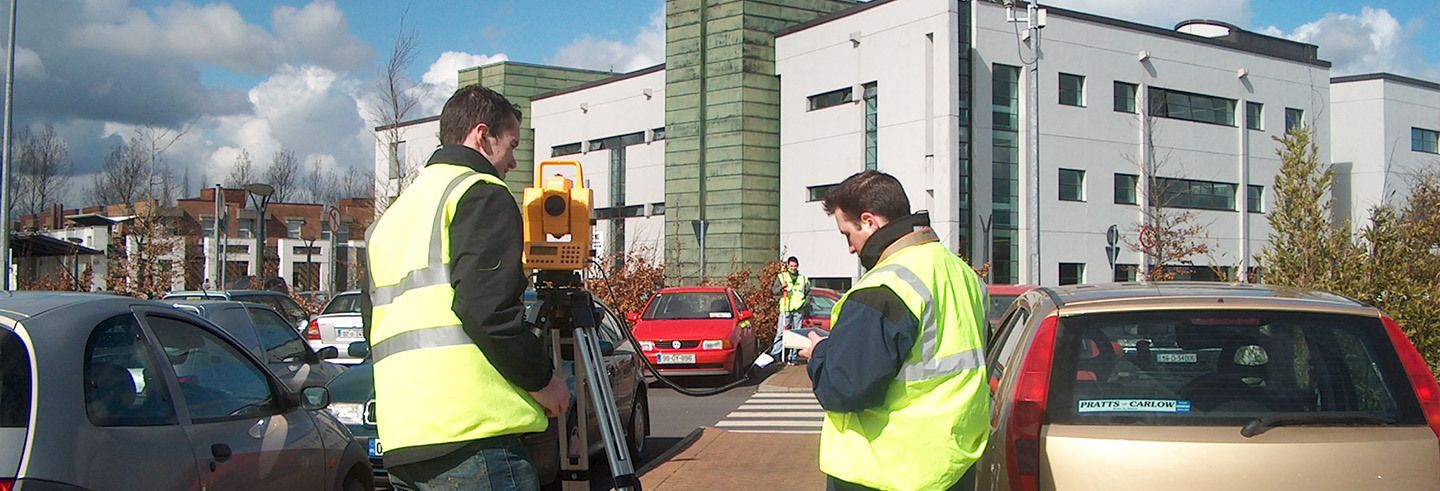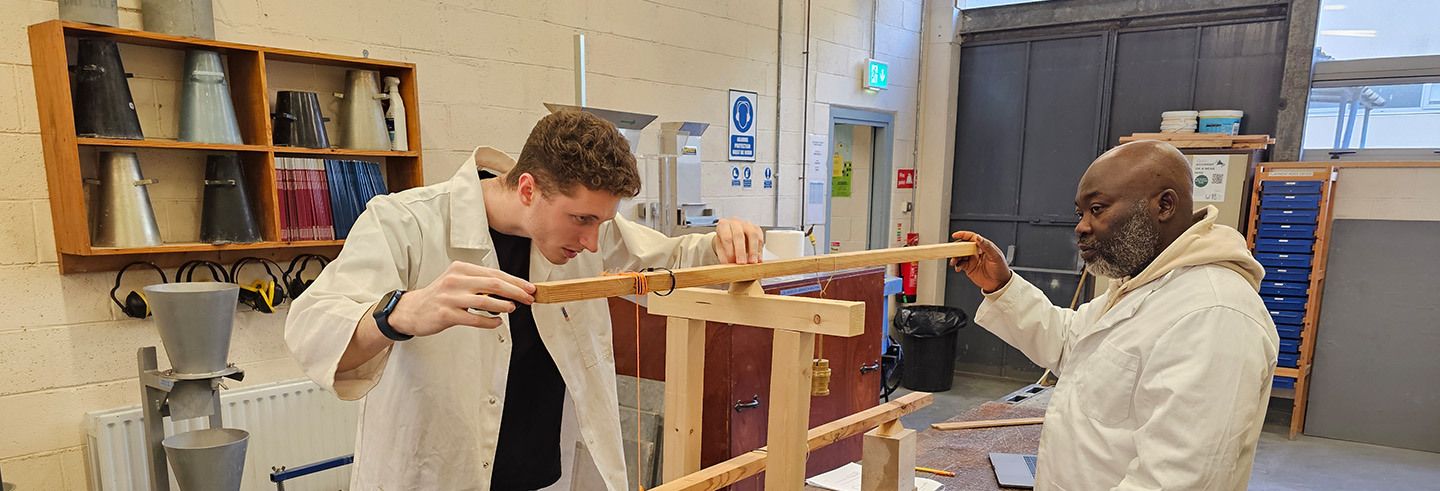
What is the Course about?
Construction Projects supply the key infrastructure that is vital for the functioning of our modern society ranging from Schools to Hospitals, Houses, Apartment Buildings, Office Blocks, Factories, Warehouses, Data Centres, Shops & Retail. Quantity Surveyors manage and control all aspects of costs on a construction project. Their expertise is critical to ensuring that construction projects are completed on time and within budget.
While Measuring and Valuing construction work is at the heart of what Quantity Surveyors do, they are deeply involved in many other aspects of the construction process including Tendering and Contract Administration, Procurement of Materials and Subcontractors, Pricing of Tenders, Project Management and advising clients on contractual implication and Building Economics.
Quantity Surveyors must have a deep understanding of Construction Technology and Construction Methods. The core expertise of a Quantity Surveyor is in all aspects of the Cost of Construction, and in particular Measuring and Valuing Construction Work. They will have a deep knowledge of Construction Contract Law and Administration, and strong Procurement and Negotiation skills.
Quantity Surveyors normally work for Professional Quantity Surveyor firms as part of the Design Team advising Clients, or they work as quantity surveyors or estimators for Building Contracting firms that construct the projects. They may also work with Property Developers, directly for Clients as Building Procurement Managers and in a variety of other roles across the Construction Industry.
Course Structure
Our course is built around helping you to develop the key skills to become a Quantity Surveyor. You will develop a deep understanding of different Methods of Construction and Construction Technology, ranging from housing to complex commercial and industrial developments. Central to the course are subjects to develop your expertise in the core quantity surveying costing skills of Measurement and Valuing of Building Work, Pricing, Estimating and Building economics. You will learn about the Legal Aspects of Construction Contracts and how to administer them. Other important subject areas you will study include Project Management, Procurement and Negotiation Skills.
We believe in Learning by Doing. In addition to lectures, we place a strong emphasis on the practical application of what you have learned. You will develop your skills through working on Individual and Team Projects that are focused on real construction situations.
Quantity Surveyors increasingly rely on sophisticated computer software and technology to assist them in their work. You will develop and practice your skills in the use of the leading-edge technology and software packages that are used in the industry.
A key part of the course is the industrial placement in the second semester of Year 3 where you will spend 6 months working in the industry.
Is this course for you?
Do you enjoy working on practical projects and working in teams with other people? Do you have a practical and logical mind? Do you enjoy problem-solving? Are you comfortable with numbers? Do you want to work in a vibrant industry with great employment/career prospects? If Yes, then Quantity Surveying should be of interest to you!
Special Features:
- This course is accredited by the Society of Chartered Surveyors Ireland (SCSI) and the Chartered Institute of Building (CIOB) which means that it meets the high standards for an honours degree set by these Professional Institutes.
- A strong commitment to Learning by Doing. Theory and Lectures are combined with practical individual and team-based projects which allow you to tackle real construction challenges.
- Training in leading-edge technology and software used by Quantity Surveyors to ensure that you are work ready upon completion of your degree.
- Equips you with the core skills of a Quantity Surveyor in Construction Technology, Measuring and Costing of Construction Work, Construction Contract Law and Administration & Procurement and Negotiations.
- Our 6 month industrial placement allows you to learn and develop in an industrial setting and make vital contacts to help progress your career.
- Excellent career prospects in an expanding construction industry

What is a Chartered Quantity Surveyor
Year 1
| Semester 1 | Semester 2 |
|---|---|
| AutoCAD, IT and Communications (M) | Building Information Modelling 1 (M) |
| Introduction to the Construction Industry (M) | Quantity Surveying Principles and Procedures (M) |
| Applied Mathematics (M) | Building Services 1 (M) |
| Land Surveying (M) | Materials Building and Land Surveying (M) |
| Domestic Technology and Structural Appreciation 1 (M) | Domestic Technology and Structural Appreciation 2 (M) |
M is a mandatory subject - E is an elective subject
Year 2
| Semester 3 | Semester 4 |
|---|---|
| Measurement and Estimating (M) | Accounting and Mathematics (M) |
| Earthworks Measurement (M) | Construction Law Introduction (M) |
| Construction Health, Safety and Risk Management (M) | Measurement (M) |
| Building Services 2 (M) | Contract Management and Planning 1 (M) |
| Commercial and Industrial Technology 1, Sustainable Technology 1 (M) | Commercial and Industrial Technology 2, Sustainable Technology 2 (M) |
M is a mandatory subject - E is an elective subject
Year 3
| Semester 5 | Semester 6 |
|---|---|
| Measurement and Costing (M) | Work Placement (M) |
| Contract Management and Planning 2 (M) | |
| Professional Practice (M) | |
| Research Methods (M) | |
| Integrated Construction Technology Project (M) |
M is a mandatory subject - E is an elective subject
Year 4
| Semester 7 | Semester 8 |
|---|---|
| Design Economics (M) | Tendering, Estimating and Cost Control (M) |
| Built Environment Law (M) | Dissertation (M) |
| Measurement, Valuation and Reporting (M) | Building Economics (M) |
| Advanced Construction Technology (M) | Management of Construction Projects (M) |
| Contract Law and Public Procurement (M) |
M is a mandatory subject - E is an elective subject
What are the minimum entry requirements?
- 2 subjects: H5
- 4 subjects: O6/H7
- English or Irish: O6/H7
- Mathematics: O6/H7
Advanced and Equivalent Entry for BSc (Hons) in Quantity Surveying:
What follow-on study opportunities are available?
Graduates may progress to an MSc in Management in the Built Environment or to research masters or doctoral studies at SETU Carlow.
What exemptions will I receive?
-
Notes
-
What will I be able to do when I finish the course?
Graduates will be qualified to:
- Manage building design costs
- Manage contract and procurement procedures
- Administer financial construction contracts and budgets
- Manage projects.
Quantity Surveyors can find employment with consultancy firms, general and specialist building contractors, local authorities and government departments.
Mechanical and electrical services are becoming an increasingly important function within buildings, and this course is unique in providing specialist training in this area at undergraduate level.
Stories
Related Courses
Course Leader















